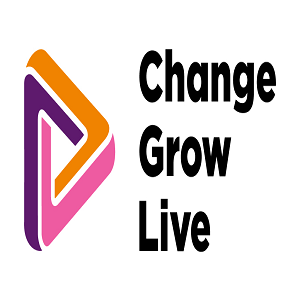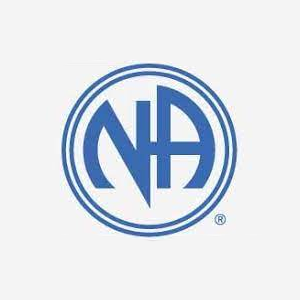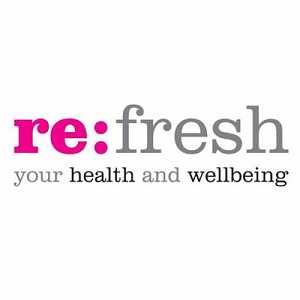Drug & Alcohol Rehab in East Yorkshire

How Does Rehab Work?
Rehab involves multiple strategies that are created to address individual addiction with support, wellness methods, and steps to restoring mental health. Clients are introduced to addiction treatment programmes that are led by experienced and professional therapists. Along with therapeutic intervention, individuals can benefit from the support received from certified counsellors and group therapy. While free outpatient services do exist, you can not expect the same level of care as those offered privately. For those who enter residential rehab, it requires that you remain inside the centre or the facility for the duration of treatment. Outpatient services are an option for those with less severe drug or alcohol dependencies. You will meet with a counsellor while keeping up with work commitments and staying at home.
What Happens During Residential Rehab?
Taking the brave step towards recovery starts with rehabilitation. It is a process, and it takes time but with dedication and support relapse can be prevented. If you’re unsure about what rehab entails, we provide a breakdown of what to expect.
Rehab occurs in stages. It starts with a medical assessment. Individuals must be professionally assessed to help staff understand the nature of your addiction, its history and comorbid disorders (such as bipolar or depression). The information obtained from the assessment is used to create a unique therapy programme for you. Because every person is unique, a personalised treatment plan will help provide a more tailored programme that meets your needs and requirements.
The next phase of a rehabilitation plan is detoxification. Detoxing from substances requires the removal of the drug or alcohol from the body, typically over a period of time that limits withdrawal symptoms. Detox should ideally be monitored professionally to assist those with withdrawal symptoms. When the substance is removed from your system, the next phase of treatment begins (therapy).
Rehabilitation includes meeting with a counsellor for private & group sessions, participation in skill-building activities as with an inpatient or residential rehab, or group meetings that are common with outpatient 12 Step programmes. We explore the various phases of rehab in greater detail.
1. Assessment

A medical assessment is conducted prior to treatment to identify medical history, and drug/alcohol use over time. If you are searching for residential treatment, an admissions team will give you a telephone assessment. An assessment by phone assists the treatment facility provide a tailored treatment package. It can also help medical professionals to manage the client during detox.
Should you require the assistance of a medical professional to manage addiction, seek a medical assessment prior to treatment commencing. Assessments are an important part of choosing the right therapy and whether inpatient or outpatient programmes are most suitable for your healthcare requirements.
2. Detox

Detox involves the cessation of drugs and alcohol from the body. With professional help, it is safely facilitated and is most commonly monitored in a residential rehab because of the risks associated with withdrawal.
It is best to have a managed medical detox because experienced staff is readily available to help you through withdrawal. As the drug is no longer consumed, you may start to develop withdrawal symptoms. Without professional help, there is a higher risk of relapse. Detoxification is followed by a fully tailored therapeutic programme. You can attend inpatient or outpatient therapy that is managed by trained addiction therapists and a support team.
3. Therapy

Therapy involves skill-building, coping strategies, and identifying the reasons for addictive behaviours. It can be delivered within an inpatient or an outpatient programme, each offering its benefit and potential drawbacks.
Step by Step Process for Residential Rehab
To understand your medical and mental health history.
Arrange a suitable date to begin your journey to recovery.
Begin the managed withdrawal process from substances including alcohol.
To understand the root cause of addiction and how to overcome it.
Aftercare is provided to help manage the risk of relapse.
To help heal the wounds that addictive behaviour has caused others.
Find your Nearest Rehab Centre in East Yorkshire
The nearest rehab centre is Yorkshire Community Rehabilitation.
Address: Yorkshire Community Rehabilitation, 4 St. Johns Ave, Bridlington YO16 4NG
Call 0333 4444 432 to discuss your alcohol or drug rehab requirements and any other questions you may have about the process of residential rehab.
Outpatient Addiction Services in East Yorkshire
From inpatient to outpatient services, the necessary treatment for substance addiction will depend upon the assessment and budget to determine the appropriate treatment for your needs. For those who are interested in the flexibility and the affordability of outpatient addiction services, we look closer at what it entails compared with an inpatient programme.
An outpatient service requires that clients attend weekly counselling sessions. You stay at home and visit the therapist, counsellor, or group leader to attend sessions. It allows one to continue to work and attend to family commitments while receiving care and intervention.
If you are interested in receiving outpatient care, it is important to find the right programme that suits your needs. Outpatient programmes range from paid private counselling to free charitable organisations that specialise in drug and alcohol addiction.
NHS Free Addiction Services in East Yorkshire

Trafalgar House 43-45 Beverley Road Walker Street Hull East Yorkshire HU3 1XH
WebsiteThe Benefits of Outpatient Services
Private Outpatient programmes will include individualised care strategies to address the specific problems and challenges that are leading to addictive behaviours. Outpatient support is commonly sought by individuals who have family commitments or those who need to work full-time. Outpatient programmes are more cost-effective than residential treatment.
The Challenges of Outpatient Services
While one stays at home and takes part in outpatient programmes, they may be at higher risk of relapse due to continual exposure to triggers and easy access to drugs or alcohol. Another point to consider is that free outpatient addiction services – offered by the NHS and other UK-based charities – do not provide a bespoke treatment plan and waiting lists are to be expected.

How Much Does Rehab Services Cost in East Yorkshire?
You can expect to pay between £1500 – £4000 per week for residential rehab. If you cannot afford a private addiction plan, you can rely on free and more affordable recovery programmes to address your drug or alcohol issues. There are many organisations that assist individuals with free and affordable services throughout the UK.
The NHS and charities including Turning Point will require a self-referral to be considered for therapy. You will also find many other affordable services (such as private counselling) or free therapies and community-supported programmes for those with drug or alcohol dependencies. These groups include AA or Alcoholics Anonymous, Narcotics Anonymous, and Cocaine Anonymous.
Support Groups in East Yorkshire

Clean Bees, Just For Today Group
Holderness Road Methodist Church 327-329 Holderness Road Hull East Riding of Yorkshire HU9 3DW

Living the Programme Group
Salvation Army 94 Beverley Road Hull East Riding of Yorkshire HU3 1YA

Clean Bees Group
Plug In Hull 22-23 Story Street Hull East Riding of Yorkshire HU1 3SA
The Pros and Cons of Seeking Treatment in Your Local Area
Pros
1. You are familiar with the area which may provide a layer of comfort/safety.
2. Loved ones can easily travel to visit or are close by.
3. You could save on the costs of travelling long distances for treatment, or free addiction services may only be offered in your hometown.
Cons
1. A local environment means access to drug dealers or other triggers. This is more of an issue if you choose outpatient programmes.
2. Not considering locations outside your area could mean a missed opportunities for more valuable and rewarding programmes.
3. Addiction treatment services that are close by don’t always provide the best standard of rehab.
If you are unsure of how to look for a rehab service you can trust, consider the CQC. The CQC website offers listings of rehabilitation services and organisations that are ranked according to the standard of its services.

